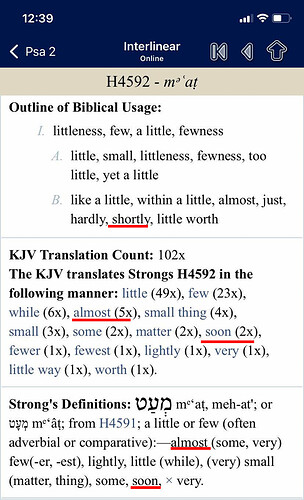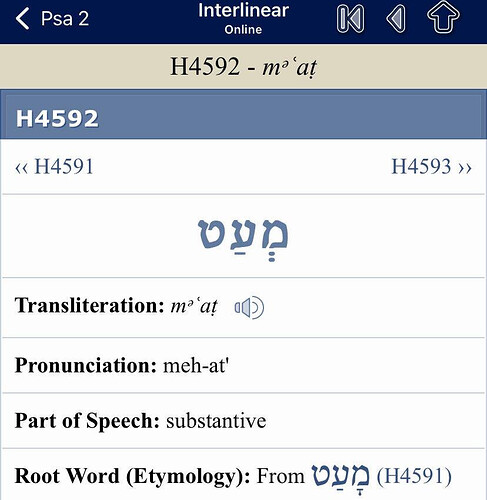Thank you, @dennis, for bringing in the Hebrew word study! It’s helpful to know that another dimension of this translation includes quantity (how much) alongside duration (how long). I hadn’t been aware of that angle!
As for the paraphrase,
I think this could be helpful as long as we remember to whom it is being addressed: the nations that set themselves up/ plot against the LORD (and his anointed). We do not worship an angry God, one who needs constant appeasing, but one who does experience anger (…so far as God experiences emotion). I think it’s important to communicate that God cannot be managed/controlled by us, which is the goal of appeasing.
The call here in this psalm is for the ‘heathen’ nations (as well as Israel) to submit to and worship the LORD…a common Old Testament theme. Refusal to do so (and, furthemore, stand in opposition to him) brings judgement/wrath upon those nations and their leaders (as well as Israel). JHWH/the LORD is the true God and is therefore worthy of worship. God’s wrath/judgement will be directed at and felt most keenly by those who (or, perhaps, that which) opposes him. Just think of Nebuchadnezzar in Dan. 4 NRSV – humiliated then restored .
To me, the psalmist seems to be giving this warning to the rulers:
You will not win. You plot in vain. Make peace with the LORD (kiss his feet [NRSV]) while you still can, for your time of judgment could come more quickly than you imagine.
If by ‘final judgement’ you mean a judgement that ends the rule of the opposition party, then, perhaps I would say yes. I tend to read Ps. 2 more as a comment on temporal regime change rather than, say, eschatological, end-of-the-word-Final-Judgement.
Moreover, Ps. 145:8-9 NRSV is a psalm of praise attributed to David, who would have experienced the LORD as compassionate, gracious and slow to anger. And, as we know, David also experienced his share of the temporal effects of God’s judgement on him and his house, so he would also know about making peace with God.
![]() .
.
